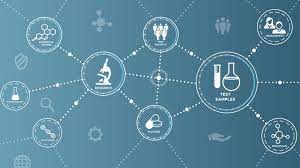
Clinical trials are an essential part of the medicine development process. They allow researchers to determine whether potential new treatments are safe and effective in humans. Conducting clinical trials is a complex process that requires coordinating many different tasks and analyzing large amounts of data. Advances in technology over the past few decades have brought improvements in the clinical trial process.
New technologies are making clinical trials more efficient, improving data quality, and enhancing collaboration among research sites. In this post, we will explore some of the critical technologies that are transforming clinical trials today.
#1 – Electronic Data Capture Systems
The entry of digital advancements has made the job of researchers easier than ever. The EDC systems allow clinical trial data to be entered and managed electronically rather than on paper. This improves accuracy, provides faster access to data for analysis, and reduces data entry errors. EDC systems integrate data from various digital sources.
#2 – Remote Patient Monitoring
Imagine monitoring participants’ progress and safety without them leaving their homes. Remote monitoring and telemedicine utilize technology to monitor trial participants, reducing the need for frequent in-person visits. It’s like having a doctor’s visit without leaving your living room. This technique helped the researchers to treat and collect the data from the participants in the COVID-19 pandemic.
#3 – Digital Biomarkers
Digital biomarkers represent an exciting new capability for clinical trials enabled by wearables, smartphone apps, and other digital tools. These biomarkers analyze device data to measure essential health and disease progression indicators. For example, a patient’s phone app can passively collect mobility data, sleep patterns, heart rate, and more. Changes in these digital biomarkers may correlate with disease activity or health outcomes.
#4 – Artificial Intelligence
AI, or Artificial Intelligence, is transforming clinical trials in numerous ways. AI can also forecast patient recruitment and retention by analyzing population demographics and behavior data. AI can analyze complex health data during trials to detect patterns and insights that could improve patient care.
It can adaptively tailor communications to each participant to improve engagement. As AI models can be taught about the process, the old data can be fed to the same to train and get better results to help the trial process.
Final Words
Technology has infiltrated all aspects of our lives. Even though our eyes do not see the world of clinical trials, it’s still a part of our lives in one way or another. With the above-mentioned technological advancements, the work of the researchers and the scientists has been reduced, and the accuracy has increased. In this post, we tried our best to discuss the involvement of technologies in clinical trials.
Related Post:
- Artificial Intelligence in Clinical Trials: How to Navigate the Promise and Perils
- Decentralized Clinical Trials: How the FDA is Supporting its Growth
- Patient Engagement Scores: How Do Different Therapeutic Areas Compare?



